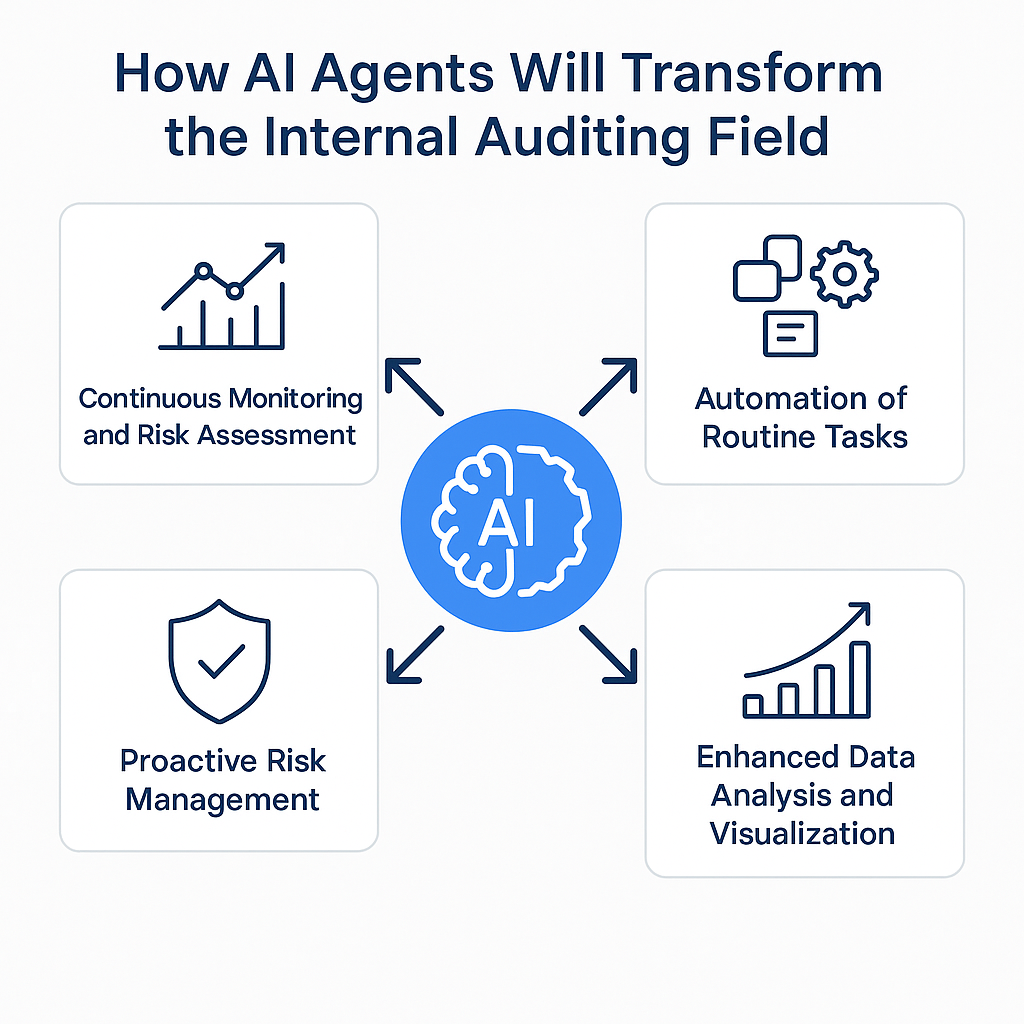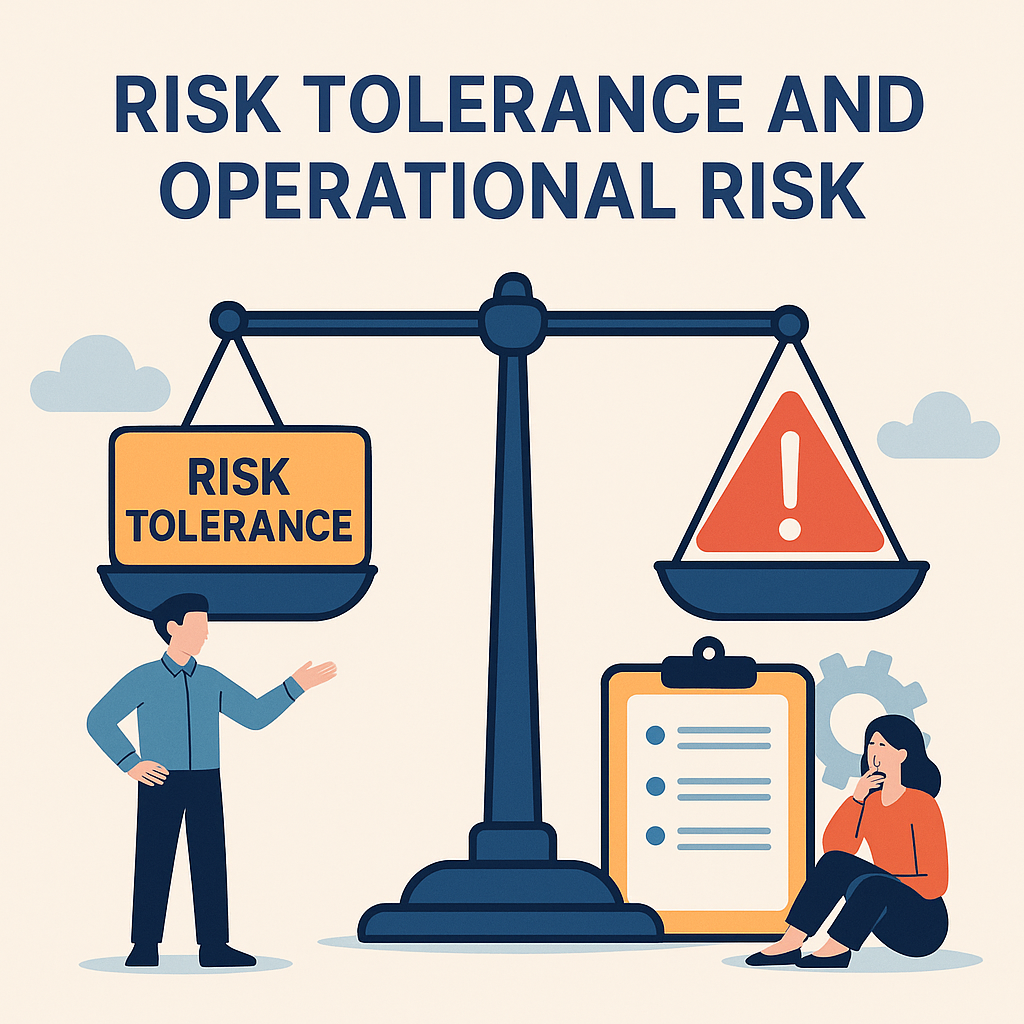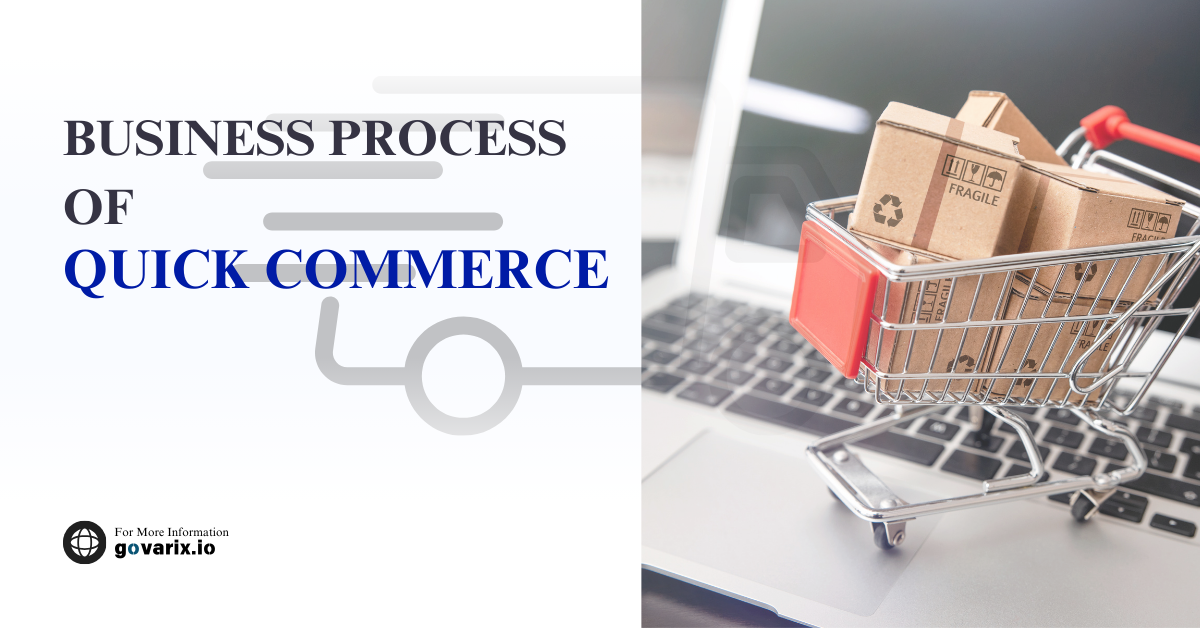Introduction
The internal auditing landscape is undergoing a significant transformation with the advent of Artificial Intelligence (AI) agents. These intelligent systems are redefining traditional audit processes, enhancing efficiency, accuracy, and providing deeper insights. As organizations grapple with complex data environments and evolving compliance requirements, AI agents emerge as indispensable tools for modern auditors.
In a summary, AI agents are potential employees within an organization or eco-system who will have a defined role/ job description. The concept is very new, and we have a long mile to go for actually realizing impacts and its materiality. It is said that majority of repetitive work will be taken over by AI Agents in the future. Some examples can be data entry, scanning, documentation etc. However, in the field of internal auditing, Agents will have a different sort of impact.
Understanding AI Agents in Internal Auditing
Firstly, let us start by understanding the basics around AI Agents and their evolution. It is essential to have a quick run-through around AI agents’ history so that we can quantify where we stand and where can this thing possibly go.
What Are AI Agents?
AI agents are autonomous software programs designed to perform specific tasks by perceiving their environment, processing information, and taking actions to achieve designated goals. In internal auditing, these agents can analyze vast datasets, identify anomalies, and assist in decision-making processes.
Evolution from Traditional Auditing
Traditional auditing methods often rely on manual sampling and retrospective analyses. AI agents shift this paradigm by enabling continuous monitoring and real-time assessments, allowing auditors to proactively address risks and compliance issues.

Key Applications of AI Agents in Internal Auditing
Below are some of the key use cases or applications of AI Agents in the field of internal auditing. There are organizations who have tested use cases and have started incorporating their existence in the organizational eco-system. We will try to discuss the same with examples.
Continuous Monitoring and Risk Assessment
AI agents facilitate real-time data analysis, enabling continuous monitoring of transactions and operations. This proactive approach allows for immediate identification of irregularities, enhancing risk management strategies.
Example: An AI agent monitors financial transactions daily, flagging any deviations from established patterns, thereby allowing auditors to investigate potential fraud promptly.
Automation of Routine Tasks
Repetitive tasks such as data entry, reconciliation, and report generation can be automated using AI agents, freeing auditors to focus on strategic analysis and decision-making.
Example: An AI agent automatically compiles and formats audit reports based on analyzed data, reducing the time auditors spend on documentation.
Enhanced Data Analysis and Visualization
AI agents can process and interpret large volumes of structured and unstructured data, providing auditors with comprehensive insights and visualizations that aid in understanding complex information.
Example: An AI agent analyzes customer feedback and transaction data to identify trends and potential areas of concern, presenting findings through interactive dashboards.
Benefits of Integrating AI Agents into Internal Auditing
Having understood the impacts and application, lets dig into the benefits of integrating agents in the auditing eco-system-
Improved Efficiency and Productivity
Automating routine tasks and enabling real-time analysis significantly reduces the time and resources required for audits, increasing overall productivity.
Enhanced Accuracy and Consistency
AI agents minimize human errors and ensure consistent application of audit procedures, leading to more reliable outcomes.
Proactive Risk Management
Continuous monitoring allows for early detection of potential issues, enabling organizations to address risks before they escalate.
Strategic Decision Support
By providing in-depth analyses and insights, AI agents support auditors in making informed, strategic decisions that align with organizational goals.
Challenges and Considerations
With any new habit or category creation, it is very obvious that there will be “known-unknowns” and lot of “unknown-unknowns”. Some of the challenges and key consideration when we talk about AI Agents and their role in the field of Internal auditing can be following-
Data Privacy and Security
Implementing AI agents necessitates stringent data governance policies to protect sensitive information and comply with regulations.
Integration with Existing Systems
Ensuring compatibility and seamless integration of AI agents with current IT infrastructure can be complex and requires careful planning.
Skill Development
Auditors must acquire new skills to effectively work alongside AI agents, including data analytics and AI literacy.
Ethical and Bias Concerns
AI agents must be designed and monitored to prevent biases and ensure ethical decision-making processes.
Future Outlook
The integration of AI agents in internal auditing is poised to become more prevalent, with advancements in machine learning and data analytics driving further innovation. Organizations that embrace these technologies will likely experience enhanced audit quality, efficiency, and strategic value. It is equally essential for internal auditors to understand these emerging technologies and leverage them in a timely manner.
Conclusion
AI agents are transforming internal auditing by automating processes, enhancing data analysis, and enabling proactive risk management. While challenges exist, the benefits of integrating AI agents are substantial, offering auditors powerful tools to navigate the complexities of modern business environments. Embracing AI in internal auditing not only improves efficiency but also positions organizations to better achieve their strategic objectives.
References
- AuditBoard. (n.d.). AI 101 for Audit Practitioners: Practical Use Cases to Elevate Audits. Retrieved from https://www.auditboard.com/blog/ai-101-for-audit-practitioners-practical-use-cases-to-elevate-audits/
- Workiva. (n.d.). Generative AI in Internal Audit: Practical Application with Example Prompts. Retrieved from https://www.workiva.com/blog/generative-ai-internal-audit-practical-application-audits-example-prompts
- EY. (n.d.). How Internal Audit Can Adapt to AI. Retrieved from https://www.ey.com/en_us/insights/ai/how-internal-audit-can-adapt-to-ai
- Deloitte. (n.d.). Artificial Intelligence Insights for Internal Audit. Retrieved from https://www2.deloitte.com/us/en/pages/advisory/articles/artificial-intelligence-for-internal-audit.html








